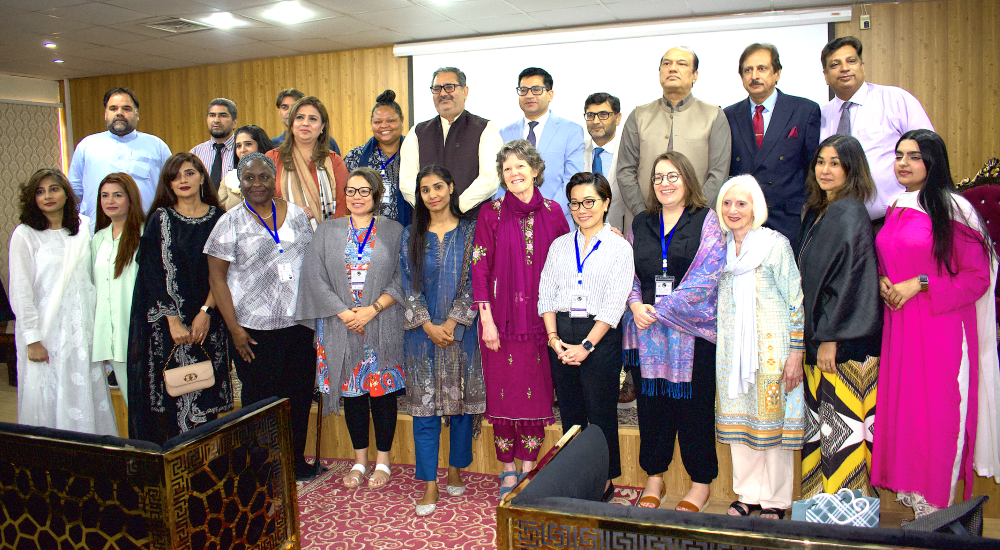Professor presents at Pakistan’s Infant Mental Health Conference
Tulane School of Social Work Associate Professor Marva Lewis, PhD, IMH-E, presented her Talk, Touch & Listen While Combing Hair curriculum to an international audience in Pakistan on April 12. Her presentation will help to inform national policy supporting perinatal and newborn mental healthcare.
The “Baby Matters” conference – Pakistan’s first-ever international infant mental health symposium – was co-hosted by the Health Services Academy (HSA), The Healing Triad, and the Pakistan Institute of Living and Learning (PILL) on April 11 in Islamabad. The conference, which served as a critical platform for the exploration of early childhood development and infant mental health, resulted in the creation of infant mental health policy for Pakistan's government and national disaster management plans.
To support the goal of providing insight into infant mental health, the Baby Matters Conference involved a series of nationwide training workshops for parents, teachers, health professionals, and policymakers. These sessions focused on caregiver support, intervention strategies, and the latest research in emotional and cognitive growth for children aged zero to three – including Dr. Lewis’ research-based Talk, Touch & Listen While Combing Hair program.
This program demonstrates how a simple daily routine can serve as a trauma-informed, culturally relevant tool to combat colorism and foster emotional bonding and intergenerational healing within families. The program has been implemented in several cities across the U.S., including New Orleans and Chicago, and will now reach children globally.
“I am honored to have been part of this country-wide initiative supporting infant mental health and the well-being of young children,” Dr Lewis said.
Dr. Lewis’ curriculum trained conference attendees to successfully facilitate Talk, Touch & Listen Parent Cafes, which promote radical listening, gentle physical touch, and lively, call-and-response musical style talk for conversations between parents and their children. Borne from Dr. Lewis’ own memories of having her hair combed as a child, the program allows parents to use the hair combing task to combat oppressive messaging related to racial identity and hair texture.

